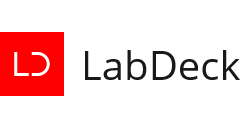

Stat Studio is a powerful and versatile statistical analysis software designed for researchers, data scientists, and analysts who require a comprehensive toolset for exploring and modelling complex datasets. This cutting-edge application combines an intuitive user interface with robust analytical capabilities, making it an indispensable asset for both novice and experienced statisticians.
Stat Studio regression testing software

Stat Studio is the ultimate regression testing software, offering a suite of over 17 regressions and more than 6 regression tests, designed to meet the needs of both novice and expert data analysts. This regression testing software supports various types of regressions, including linear, logistic, and polynomial, providing flexibility and precision in modelling. With its advanced regression test software capabilities, users can easily perform key regression tests such as the F-test, t-test, and Durbin-Watson test to validate model assumptions and ensure accuracy. Stat Studio simplifies the entire analysis process by automatically generating essential statistics like R-squared values, p-values, and residual plots. For anyone in need of reliable and versatile regression test software, Stat Studio stands out as a comprehensive solution for conducting both basic and advanced regression analyses.
Stat Studio’s comprehensive suite of regression analysis tools makes it an invaluable asset for data science professionals who require precision in their modeling efforts. This regression software not only supports simple linear regression but also offers more complex methods such as Ridge, Lasso, ElasticNet, and Decision Tree regression. These advanced features ensure that users can tackle a wide variety of data science challenges, from basic predictive modeling to sophisticated machine learning tasks. The ability to conduct multiple regression methods side by side enables analysts to compare models and select the best fit for their data, making Stat Studio one of the most versatile regression software platforms available.
Beyond its core regression capabilities, Stat Studio offers an array of data visualization and customization tools that enhance the overall data science workflow. The software allows users to visualize regression lines, trendlines, and residuals in interactive and customizable plots, providing deeper insights into the relationships between variables. For those working in fields such as finance, healthcare, or academia, where data presentation is crucial, Stat Studio ensures that both the regression analysis and its visual representation are professional and publication-ready. Its robust data import options and flexible data handling features further expand its appeal, making it easier to integrate datasets from different sources and prepare them for regression analysis.
STAT Studio Advanced Data Analysis and Regression
| MatDeck Free | Lite MD Python Designer | MD Python Designer | Engineering Designer | Visionary Deck | MatDeck | |
| STAT Studio |
For users engaged in statistical tests alongside regression analysis, Stat Studio provides a variety of built-in tests, such as the Breusch-Pagan test for heteroskedasticity, the Shapiro-Wilk test for normality, and the Augmented Dickey-Fuller test for stationarity in time series data. These tests ensure that model assumptions are met, increasing the reliability of the analysis. This feature-rich environment makes Stat Studio the go-to software for researchers and data scientists who need a dependable, all-in-one tool for conducting regression analysis, performing regression testing, and visualizing results with ease and precision.
Examples of Stat Studio’s Regression Testing and Data Table
One of Stat Studio’s standout features is its advanced plotting capabilities. The software offers a wide range of visualization options, allowing users to create professional-grade charts and graphs with ease. As demonstrated in the image, users can generate scatter plots with customizable markers, line styles, and colours. The ability to overlay regression lines and add trend lines further enhances the analytical value of these visualizations.
The regression analysis tools in Stat Studio are particularly noteworthy. Users can choose from various regression methods, with linear regression being just one of many options available. The software automatically calculates and displays key statistical measures such as Mean Squared Error and R-squared values, providing immediate insight into the model’s performance. The regression equation is also prominently displayed, allowing for quick interpretation of the relationship between variables.

Showcase of Stat Studio Advanced Customisation
Stat Studio’s data handling capabilities are equally impressive. The software supports a variety of data import options, as evidenced by the “Open File” button in the interface. This flexibility allows users to work with datasets from multiple sources, making it an ideal tool for integrating and analysing data from diverse origins.
The customization options extend beyond just the visual aspects of the software. Users can fine-tune their analysis by adjusting parameters such as marker types, line styles, and colour schemes. This level of control ensures that outputs can be tailored to meet specific presentation or publication requirements.
For users engaged in more complex analyses, Stat Studio offers advanced features like data cleaning and scaling tools. These functionalities are crucial for preparing datasets for analysis, ensuring that the results are both accurate and meaningful. The presence of a dedicated “Tests” tab suggests that the software also supports a wide array of statistical tests, further expanding its analytical capabilities.


Cleaning and Scaling Tabs in Stat Studio
Stat Studio Functions and Features
Tests
- ADF (Augmented Dickey-Fuller) Test
- Heteroskedasticity Test (Breusch-Pagan test)
- Shapiro-Wilk Test
- Anderson-Darling Test D’Agostino-Pearson Test
- Correlation Test
- Basic statistics (mean, median, standard deviation)
- Correlation analysis
Regression Methods
- Simple Linear Regression
- Multiple Linear Regression
- Polynomial Regression (degree 2)
- Polynomial Regression (degree 3)
- Polynomial Regression (degree 4)
- Polynomial Regression (degree 5)
- Polynomial Regression (degree 6)
- Polynomial Regression (degree 7)
- Polynomial Regression (degree 8)
- Ridge Regression
- Lasso Regression
- ElasticNet Regression
- Decision Tree Regression
- Random Forest Regression
- SVR (Support Vector Regression)
- K-Neighbors Regression
- Gradient Boosting Regression
